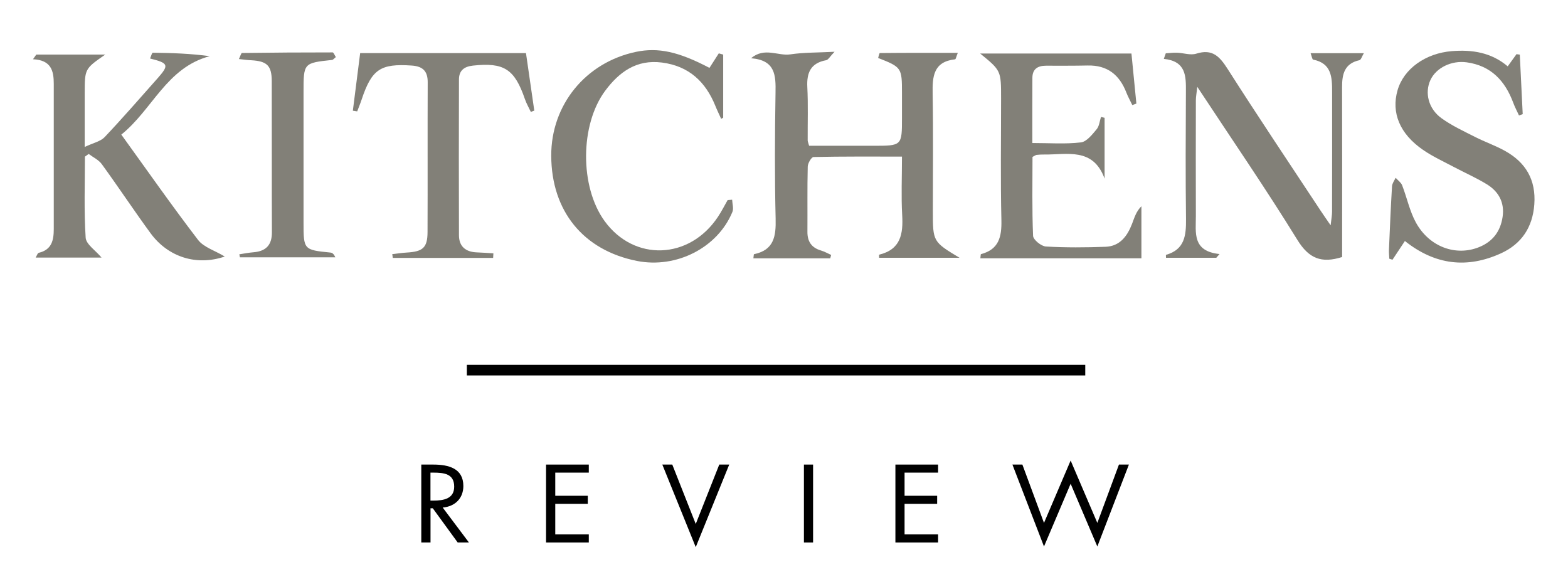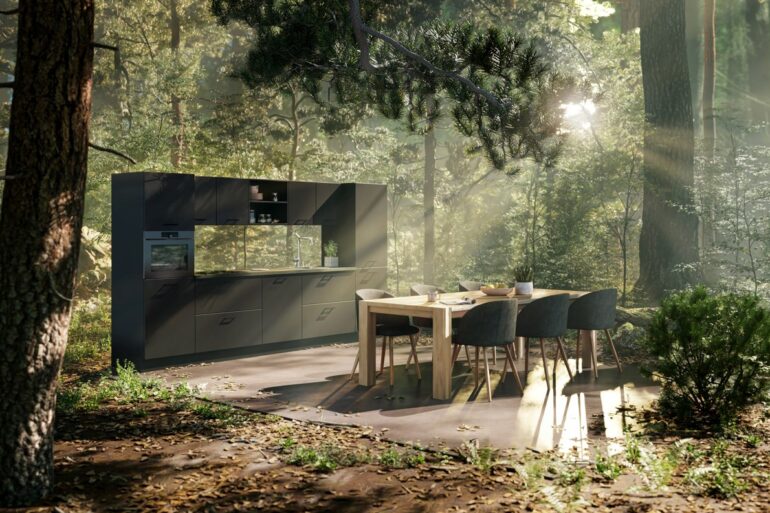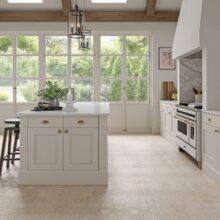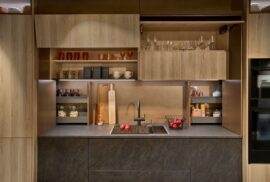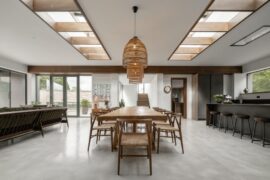Keller Kitchens introduces bio-based enduura® kitchen
Keller has delivered the first bio-based kitchen to the kitchen market. enduura® is exceptional because the material used is not readily available on the market. By bringing together complementary suppliers, Keller has created a bio-based interior panel suitable for mass production from their own manufacturing facility in Bergen op Zoom, The Netherlands. With the introduction of the biobased kitchen, DKG takes an important step towards its goal: 100% bio-based products by 2030.
The base material is MDF which comprises residual streams from the wood industry. This means that no trees are cut down for its production, thus avoiding extra CO2 emissions. In addition, conventional MDF contains a binder made from fossil, environmentally-harmful materials. With the enduura®, the binder of this super-sustainable kitchen comes from organic residues from the food industry; namely sunflower seeds and rapeseed. These resources are completely renewable, while the protein concentrate from these seeds has been found to work exceptionally well as a binder for sheet material in the interior industry.
The top layer is a HPL (high pressure laminate) made from kraft paper and a bio-based resin in place of phenolic resin. This makes the kitchen free from phenol and formaldehyde which is a chemical that emits an unpleasant odour which is harmful. Kraft paper, already widely used for biodegradable packaging, is made from the pulp of coniferous trees, which are more sustainable as they grow much faster than deciduous trees. The applied organic resin is made from bagasse fibre, the residue of sugar cane once all the sugar has been extracted. The result is a bio-based sheet material made from renewable raw materials that are much less burdensome on the environment than traditional materials. Because they sequester CO2 during their growth and because production is often more energy-efficient than with traditional materials, the CO2 footprint is substantially smaller while, thanks to the application of HPL, the kitchen will last at least 25 years.
Currently, Keller, in The Netherlands, operates a circular process for kitchens made of chipboard. Old kitchens are collected and converted by the circular processor into new raw materials for the company’s largest chipboard supplier. Keller is now investigating how the biobased kitchen can be collected to make new raw materials.
For further information, please visit www.kellerkitchens.com.
